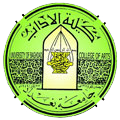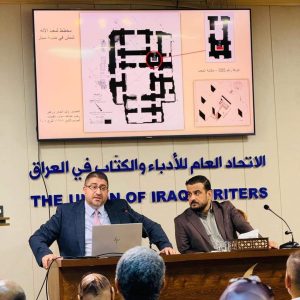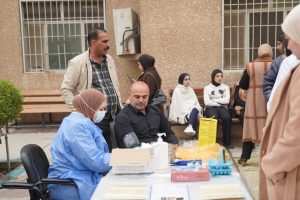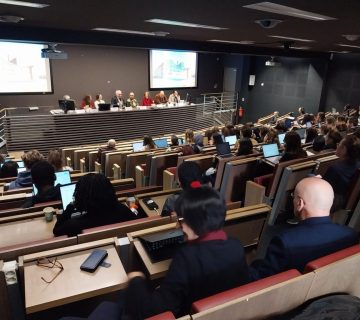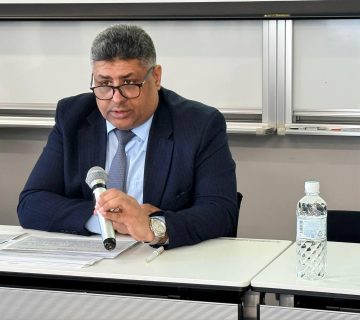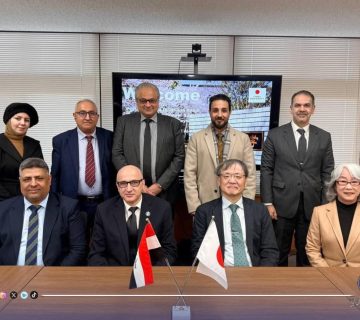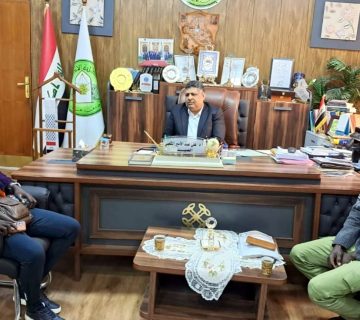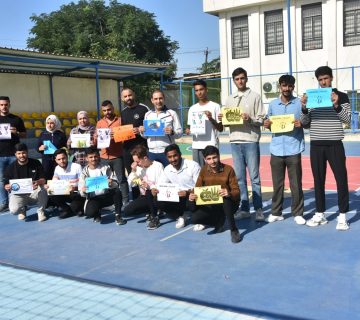The College of Arts played an active role in the symposium, organised by the Union of Iraqi Writers, which explored the impact of artificial intelligence (AI) on the humanities. A group of experts from the College of Arts, University of Baghdad, participated in the event
The symposium was moderated by Professor Dr. Ali Aboud Muhammadawi, Associate Dean for Student Affairs, who emphasised the importance of artificial intelligence, a subject engaging philosophers, writers, and scientists alike. Furthermore, Professor Dr. Basim Ali Khreisan posited that AI represents not only a technical advancement but also a new stage in human development. The Head of the Department of Archaeology at the University of Baghdad, Prof. Dr. Anmar Abdulillah Fadhil, highlighted two principal areas of archaeological study: the investigation of architectural remains and the examination of cuneiform texts. He emphasised that, although archaeology is still a relatively young and evolving field, the advent of modern technology has opened up new avenues for research. Using digital platforms, he conducted an extensive review of numerous archaeological sites in Iraq, many of which remain undiscovered. He noted that modern geophysical survey techniques allow for the identification of numerous archaeological sites
Dr. Ahmed Ali Jassim confirmed that AI has had both positive and negative impacts on society. He delineated three AI applications currently within his purview: the introduction of AI to nursing homes, Al-Rashad Psychiatric Hospital, and the Disabled and Orphans’ Home. He emphasised these as practical implementations. In Iraq, he noted, despite numerous AI conferences, tangible outcomes remain scarce, leaving AI largely a concept rather than a concrete reality in the country
In conclusion, the symposium highlighted the transformative potential of AI in various fields within the humanities, from archaeology to social care. Despite AI’s mixed impact on society, the experts emphasised its role as both a technical and human development
